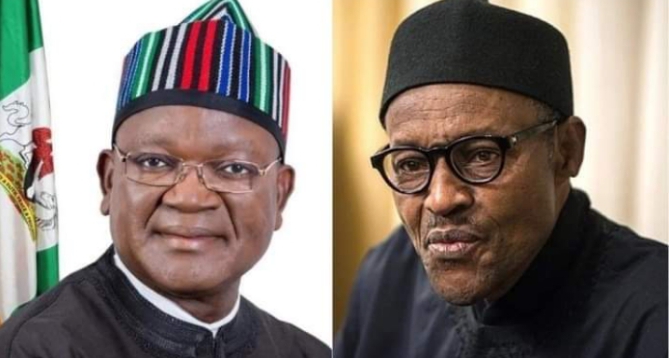
Benue State Governor, Samuel Ortom on Tuesday lamented the continuous killings in the state by suspected herdsmen.
Speaking on the attack on Abegana village, which house one of the eight designated Internally Displaced Persons’ camps in the state, Ortom said that 70 people had been killed in Makurdi, Guma and Gwer West local government areas.
He said the attack on Abegana IDP camp, where seven people were killed on Tuesday, should make the President, Major General Muhammad Buhari (retd.) to convey security summit to discuss insecurity in the country.
Ortom said, “We are being overstretched and the people are fed up. We all cast our votes for President Buhari. He must not continue to be aloof. He must tell us where we are going in this country. The body language of the President shows that he is the President of the Fulani people.”
Suspected herdsmen attack Abegana IDP camp
Meanwhile, it was gathered that the attack on the Abegana IDP camp was carried out by suspected herdsmen numbering about 10.
One of the victims said the men came in the early hours of Tuesday and killed seven people.
He said six persons were killed on the spot while one person died in hospital.
When our correspondent visited the village, youths had mounted roadblock to protest against the killing of the seven people.
They also displayed the six dead bodies on the highway.
The roadblock was said to have prevented vehicular movement on Makurdi-Laafia Road for several hours before the Ortom ordered its removal.
Victims narrate ordeal
One of the victims of the attack who was receiving treatment at the state University Teaching Hospital, Makurdi, David Avese, a father of seven, said he lost one kid to the herdsmen, while three other were shot.
Avese said, “The herdsmen surrounded our village around 12am; they were about 10 in number and they shot and entered people’s houses.
“They killed one of my children and shot three others. I have not seen my wife.”
Another victim, Gwabo Matthew said, “They (herdsmen) operated for over two hours. The attackers were Fulani because they were speaking in Fulfulde language.”
By John Charles












